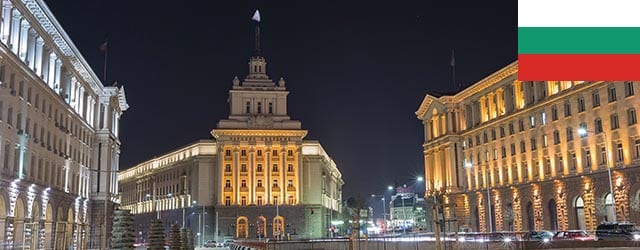Bulgaria’s multilingual workforce attracts foreign investors, but corruption is a problem.

In their transition from tightly planned Communist economies to free markets, the nations of the former Soviet bloc sit at different points on the spectrum. Bulgaria has advanced further toward classic capitalism than Albania or Macedonia, but not as far as Poland, Hungary and Romania.
That’s the assessment of Georgi Kalchev, economics professor at the American University in Bulgaria. In part, he attributes the country’s failure to transform itself completely to Russia’s ongoing corporate and political influence. The transition “will continue slowly, but we hope for better development,” he says.
For foreign direct investors willing to do their due diligence, Bulgaria offers advantages that could enhance a corporation’s global footprint. The country’s membership in the European Union provides a platform for duty-free exporting within the EU, explains Desislava Nikolova, chief economist at the Institute for Market Economics, a research organization based in Sofia. For example, in 2012, Chinese car manufacturer Great Wall Motors set up an assembly line near the town of Lovech. Production is still just a couple of thousand vehicles a year, but plans call for annual output of 50,000 by 2018. “The main market for these cars is the wider European market,” says Nikolova.
Bulgaria’s low unit costs and its workers’ multilingual capabilities make it attractive to US companies looking to outsource customer service. IBM, Coca-Cola and Hewlett-Packard have all established call centers there, says Nikolova. In fact, in Cushman & Wakefield’s 2015 rankings of business process outsourcing locations, Bulgaria moved up to third place from 14th in 2014, while Romania fell from first place to fourth. The firm credits Bulgarians’ education level and language skills.
The country also has an appealing tax structure. Income tax is a flat 10%, and the 10% corporate tax compares with 16% in Romania and 15% in Serbia. Companies willing to invest in depressed areas where the unemployment rate is 25% or more above the national average pay no tax.
Against those advantages, however, Bulgaria has a serious corruption problem, far more so than other former Soviet bloc members. Kalchev says Romania has worked more aggressively to eradicate corruption—for example, creating an independent agency empowered to prosecute errant politicians. In fact, its National Anticorruption Directorate has a reputation for fearlessness, and its targets include Romanian prime minister Victor Ponta. In Bulgaria, by contrast, “they simply refuse to take such [steps] to prosecute corruption,” says Kalchev.
Judicial proceedings go very slowly, and regulations governing areas such as construction permits can strike applicants as Byzantine, involving many different offices. Furthermore, despite the generally high-quality workforce, businesses in many sectors face a shortage of skilled labor—the result of an aging population, a mismatch between university education and labor market needs, and the emigration of many specialists. Over time, these shortfalls could erode the country’s competitive advantage in employees.
Taken together, the downsides make Bulgaria one of the toughest FDI decisions among former Soviet bloc nations. Nevertheless, Kraft, Nestlé, Carlsberg and Molson Coors have opened production facilities in Bulgaria. Chemical company Solvay and manufacturer Liebherr have, too. The Bulgarian government’s current FDI targets include tourism, technology, manufacturing, finance and energy. Whoever decides to invest in Bulgaria, says Nikolova, takes the negatives into consideration and decides the positives weigh more.
VITAL STATISTICS |
|---|
|
Location: Southeast Europe |
|
Neighbors: Turkey, Greece, Macedonia, Serbia, Romania |
|
Capital city: Sofia |
|
Population (2014): 7.2 million |
|
Official language: Bulgarian |
|
GDP per capita (2014): $7,713 |
|
GDP growth (2014): 1.7% |
|
Inflation (2014): 1.4% |
|
Currency: Lev |
|
Investment promotion agency: Invest Bulgaria |
|
Investment incentives available? Support depends on project classification |
|
Ease of Doing Business rank (2015): 38 |
|
Corruption Perceptions Index rank (2014): 69 |
|
Political risk: The political landscape is growing increasingly fragmented, with regular bouts of parliamentary deadlock. |
|
Security risk: The impact of the refugee crisis on Bulgaria is unknown; Bulgaria is set to receive military hardware from Washington. |
PROS |
|---|
|
Plans for infrastructure improvements |
|
Stable credit rating outlook |
|
No restriction on repatriation of profits |
|
Fixed exchange rate between the lev and the euro |
CONS |
|---|
|
Unclear whether Bulgaria will gain admission to the Schengen Area |
|
Shrinking population has left some areas deserted or nearly deserted |
|
Concerns about bank supervision |
Sources: BMI Research, Independent Balkan News Agency, International Monetary Fund, Novinite.com, Reuters, Sofia Globe, US State Department, Transparency International, World Bank For more information on Bulgaria,



